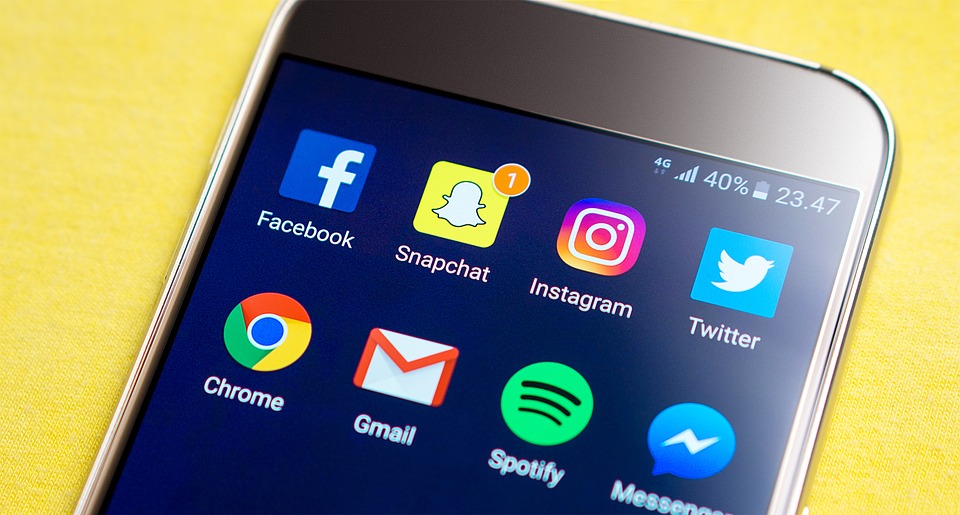If you feel that you’re spending too much time on social media, then you probably are. But don’t worry, you’re not alone. Findings show that, on average, we spend over 2 hours on social media every day. And this figure is increasing every year. This is interesting because it calls into question whether there will be a plateau in terms of our social media usage. Could we end up spending half of our waking day on social media at some point in the future? Charlie Brooker’s dystopian TV series Black Mirror portrays a society with social media obsession at its core. And it’s pretty disturbing.
If you’re a social media manager, then it’s totally normal to spend half of your day on Facebook and Twitter. But for everyone else who isn’t exclusively using social media for work-related purposes, extensive time spent scrolling the News Feed can have negative effects on your mental health. It’s Instagram, though, which is considered the worst social media app in terms of how it influences depression, anxiety and issues relating to self-identity and body image. These effects are particularly pronounced for young women.
If we want to look after our well-being, then unplugging from social media seems to be the way to go.
Bad Habits
Given what we know about the effects of social media, it seems to make perfect sense to change how we use it, so our well-being is improved, not worsened.
Unfortunately, as habit-forming creatures, it’s not that easy to immediately do what we know would be in our best interest. We can use our powers of reasoning to decide what course of action would be the most beneficial, but too often we don’t act in accordance with our beliefs and knowledge.
So why does this happen?
One reason is that social media acts on the ancient reward system in the brain. Sharing, liking and receiving feedback triggers the release of the pleasure-causing dopamine chemical; so we repeat this behaviour in order to get the same feeling. This may seem to suggest that Facebook must make us feel better, not worse if it encourages the release of dopamine. However, like with habit-forming and addictive drugs or behaviours, you can get a short-term fix, at the cost of negative long-term consequences.
How to Change Your Habits to Protect Your Well-Being
In The Power of Habit, Charles Duhigg highlights the science behind why habits exist and shows how this new understanding of human nature contains the potential for transformation. Duhigg notes that habits are created by a loop of cue, routine and reward (which has very specific activity in the brain). In terms of a bad habit, a cue might be stress, the routine could be smoking and the reward is the feeling that smoking brings. To break the cycle and develop a positive habit instead you need to change the routine.
If the cue is boredom, the routine is checking the News Feed and the reward is the dopamine hit, then you just need to replace checking the News Feed with something else. This will take practice. It is, after all, a kind of mental training. You don’t develop positive habits overnight, through sheer force of willpower, but over time, with consistent, conscious effort – with discipline.
You may find that taking an extended break from all social media channels may help you to change your routine. Deactivating your Facebook account, even just for a month, may allow you to see how much your mental health can improve without it, so that when (or if) you do re-activate your account, you use it in a much less habitual and negative way.
Also, considering how much time we spend on social media, just think about all the free time you’ll have without it in your life. You can do a lot with 2 extra hours in the day.
Stop Comparing Yourself to Others
The problem with spending so much time on Facebook and Instagram is that you end up comparing yourself to others constantly. Without social media, these kinds of comparisons still exist and have social value, but the problem with the News Feed is that it amps up this whole process – it’s a platform in which you can compare your life to so many people, so easily, and in a very in-your-face kind of way. Moreover, the kind of life portrayed on the News Feed is unrealistic and cherry-picked. You’re getting the highlights. No one’s life is actually like that.
This is why social media can be such a powerful source of envy, shame, guilt, anxiety and low self-esteem. It encourages feelings that you are not doing enough; that you are not enough in general.
To really understand how social media can have this effect, and to use it much more wisely, unplugging for a while can make a world of difference. Just as we go on holiday to take a break from the stresses of our daily lives, sometimes it might be necessary to do the same with social media.

Plenty of options to share this article on social media. 🙂